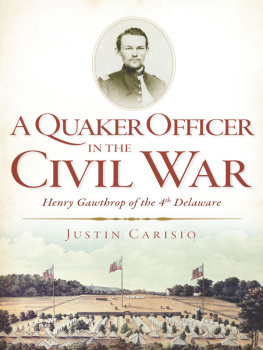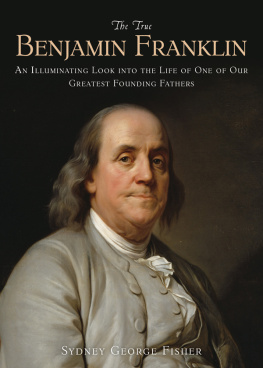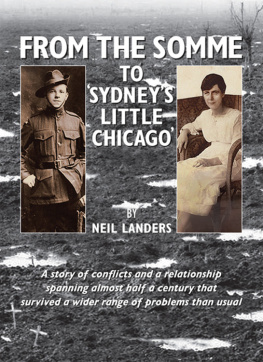Chapter I. The Birth Of Pennsylvania
Table of Contents
In 1661, the year after Charles II was restored to the throne of England, William Penn was a seventeen-year-old student at Christ Church, Oxford. His father, a distinguished admiral in high favor at Court, had abandoned his erstwhile friends and had aided in restoring King Charlie to his own again. Young William was associating with the sons of the aristocracy and was receiving an education which would fit him to obtain preferment at Court. But there was a serious vein in him, and while at a high church Oxford College he was surreptitiously attending the meetings and listening to the preaching of the despised and outlawed Quakers. There he first began to hear of the plans of a group of Quakers to found colonies on the Delaware in America. Forty years afterwards he wrote, "I had an opening of joy as to these parts in the year 1661 at Oxford." And with America and the Quakers, in spite of a brief youthful experience as a soldier and a courtier, William Penn's life, as well as his fame, is indissolubly linked.
Quakerism was one of the many religious sects born in the seventeenth century under the influence of Puritan thought. The foundation principle of the Reformation, the right of private judgment, the Quakers carried out to its logical conclusion; but they were people whose minds had so long been suppressed and terrorized that, once free, they rushed to extremes. They shocked and horrified even the most advanced Reformation sects by rejecting Baptism, the doctrine of the Trinity, and all sacraments, forms, and ceremonies. They represented, on their best side, the most vigorous effort of the Reformation to return to the spirituality and the simplicity of the early Christians. But their intense spirituality, pathetic often in its extreme manifestations, was not wholly concerned with another world. Their humane ideas and philanthropic methods, such as the abolition of slavery, and the reform of prisons and of charitable institutions, came in time to be accepted as fundamental practical social principles.
The tendencies of which Quakerism formed only one manifestation appeared outside of England, in Italy, in France, and especially in Germany. The fundamental Quaker idea of "quietism," as it was called, or peaceful, silent contemplation as a spiritual form of worship and as a development of moral consciousness, was very widespread at the close of the Reformation and even began to be practiced in the Roman Catholic Church until it was stopped by the Jesuits. The most extreme of the English Quakers, however, gave way to such extravagances of conduct as trembling when they preached (whence their name), preaching openly in the streets and fieldsa horrible thing at that timeinterrupting other congregations, and appearing naked as a sign and warning. They gave offense by refusing to remove their hats in public and by applying to all alike the words "thee" and "thou," a form of address hitherto used only to servants and inferiors. Worst of all, the Quakers refused to pay tithes or taxes to support the Church of England. As a result, the loathsome jails of the day were soon filled with these objectors, and their property melted away in fines. This contumacy and their street meetings, regarded at that time as riotous breaches of the peace, gave the Government at first a legal excuse to hunt them down; but as they grew in numbers and influence, laws were enacted to suppress them. Some of them, though not the wildest extremists, escaped to the colonies in America. There, however, they were made welcome to conditions no less severe.
The first law against the Quakers in Massachusetts was passed in 1656, and between that date and 1660 four of the sect were hanged, one of them a woman, Mary Dyer. Though there were no other hangings, many Quakers were punished by whipping and banishment. In other colonies, notably New York, fines and banishment were not uncommon. Such treatment forced the Quakers, against the will of many of them, to seek a tract of land and found a colony of their own. To such a course there appeared no alternative, unless they were determined to establish their religion solely by martyrdom.
About the time when the Massachusetts laws were enforced, the principal Quaker leader and organizer, George Fox (1624-1691), began to consider the possibility of making a settlement among the great forests and mountains said to lie north of Maryland in the region drained by the Delaware and Susquehanna rivers. In this region lay practically the only good land on the Atlantic seaboard not already occupied. The Puritans and Dutch were on the north, and there were Catholic and Church of England colonies on the south in Maryland and Virginia. The middle ground was unoccupied because heretofore a difficult coast had prevented easy access by sea. Fox consulted Josiah Coale, a Quaker who had traveled in America and had seen a good deal of the Indian tribes, with the result that on his second visit to America Coale was commissioned to treat with the Susquehanna Indians, who were supposed to have rights in the desired land. In November, 1660, Coale reported to Fox the result of his inquiries: "As concerning Friends buying a piece of land of the Susquehanna Indians I have spoken of it to them and told them what thou said concerning it; but their answer was, that there is no land that is habitable or fit for situation beyond Baltimore's liberty till they come to or near the Susquehanna's Fort." * Nothing could be done immediately, the letter went on to say, because the Indians were at war with one another, and William Fuller, a Maryland Quaker, whose cooperation was deemed essential, was absent.
* James Bowden's "History of the Friends in America," vol. I, p.
This seems to have been the first definite movement towards a Quaker colony. Reports of it reached the ears of young Penn at Oxford and set his imagination aflame. He never forgot the project, for seventeen is an age when grand thoughts strike home. The adventurousness of the plan was irresistiblea home for the new faith in the primeval forest, far from imprisonment, tithes, and persecution, and to be won by effort worthy of a man. It was, however, a dream destined not to be realized for many a long year. More was needed than the mere consent of the Indians. In the meantime, however, a temporary refuge for the sect was found in the province of West Jersey on the Delaware, which two Quakers had bought from Lord Berkeley for the comparatively small sum of 1000 pounds. Of this grant William Penn became one of the trustees and thus gained his first experience in the business of colonizing the region of his youthful dreams. But there was never a sufficient governmental control of West Jersey to make it an ideal Quaker colony. What little control the Quakers exercised disappeared after 1702; and the land and situation were not all that could be desired. Penn, though also one of the owners of East Jersey, made no attempt to turn that region into a Quaker colony.
Besides West Jersey the Quakers found a temporary asylum in Aquidneck, now Rhode Island. * For many years the governors and magistrates were Quakers, and the affairs of this island colony were largely in their hands. Quakers were also prominent in the politics of North Carolina, and John Archdale, a Quaker, was Governor for several years. They formed a considerable element of the population in the towns of Long Island and Westchester County but they could not hope to convert these communities into real Quaker commonwealths.












